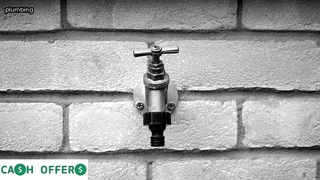When selling a house in Pennsylvania, it is important to understand the legal disclosure obligations that come along with the process. The Pennsylvania Real Estate Seller Disclosure Law requires sellers of residential real estate to disclose any material defects or conditions of their property known to them.
This includes both physical conditions of the property such as plumbing or electrical issues, and environmental hazards like lead-based paint, asbestos, and mold. Sellers are also obligated to provide potential buyers with a written disclosure statement setting out all known material defects.
Failure to provide this information can result in financial liability for the seller. Further, it is important for sellers to be aware of complex regulations concerning radon and other pollutants that might be present on the property.
Lastly, when listing a property for sale in Pennsylvania, sellers should seek legal advice from an experienced attorney who can help ensure compliance with all applicable laws and regulations.

When selling a house in Pennsylvania, both the seller and the real estate agent have certain disclosure obligations. The seller must disclose information about the condition of the property and any known defects, such as water damage or structural issues.
Additionally, they must provide a Lead-Based Paint Disclosure form if they know that the property contains lead-based paint. The real estate agent is legally obligated to provide a Property Condition Disclosure Statement to prospective buyers as well as an agency disclosure statement informing them of their role and duties in the transaction.
Both parties must also comply with all relevant federal and state laws regarding disclosure of material facts when selling a home. It's important for sellers to be aware of their disclosure obligations so that they can accurately inform buyers about the property and ensure that all parties are protected throughout the purchasing process.
In Pennsylvania, sellers must disclose any known material defects regarding the property to potential buyers. This is legally required in accordance with the state's Seller Disclosure Law.
Buyers should be informed about anything that could affect their decision to purchase the property, such as past water damage, mold issues, roof problems, or other structural damage. Sellers may also need to provide information about any recent renovations that have been made on the property and the condition of any appliances or fixtures included in the sale.
Additionally, sellers should make buyers aware of any easements on their land and any neighborhood noise or odor issues that could impact their quality of life. It is important for sellers to be transparent and forthcoming when it comes to disclosure obligations in order to avoid potential legal repercussions and ensure a smooth transaction for everyone involved.

When selling a house in Pennsylvania, understanding the potential for defects to develop after closing is essential. Disclosure obligations are required by law, and as a seller you must disclose any known material facts about the condition of the property to the buyer.
This includes known issues such as water damage, roofing problems, or evidence of pests or infestations. In certain instances, it is also necessary to disclose if there have been any past lawsuits related to the property.
Additionally, sellers must make sure that all relevant documents are transferred correctly during closing and all taxes have been paid up-to-date. It's important for buyers to be aware of their rights should issues arise after closing; they may be able to seek legal action against the seller if any material defects were not disclosed prior to purchase.
Knowing these disclosure obligations will help both parties protect themselves and ensure a smooth transition into homeownership.
When selling a house in Pennsylvania, it is important to be aware of the disclosure obligations under the state's real estate laws. Knowing how to file a claim under the PA Real Estate Disclosure Law can help protect a seller from costly legal issues.
The law requires that sellers disclose any material defects in their property before entering into a contract with a buyer. This includes any major structural damage, mechanical problems, or health and safety hazards on the premises.
The seller must also provide buyers with an accurate description of the land and any existing improvements or additions to it. Additionally, sellers are obligated to provide information on any environmental contamination or neighborhood nuisances that may affect the value of their property.
Furthermore, all known violations of local building codes must be disclosed before closing. It is important for sellers to understand these disclosure requirements when selling a house in Pennsylvania in order to ensure compliance with the law and avoid potential liability for non-disclosure.

When selling a home in Pennsylvania, it is important to be aware of the disclosure obligations that you must fulfill. As a seller, you are obligated to provide potential buyers with information about the condition of the property.
This includes informing them of any known problems or defects that may affect the value and desirability of the property. In Pennsylvania, sellers must disclose all material facts concerning the home's condition, even if they are not asked directly.
This includes information about past flooding or water damage, any structural issues such as foundation issues, and any other defects in the house. Sellers should also provide details on when certain items were last serviced or replaced including HVAC systems, appliances, plumbing fixtures and more.
All this information must be given to potential buyers before they make an offer so they can make an informed decision about purchasing the home. It is important for sellers in Pennsylvania to understand their disclosure obligations when selling a house in order to protect themselves from any potential legal ramifications.
In Pennsylvania, sellers are required to disclose certain types of information and defects when selling a house. This includes any existing physical damages, such as roofing problems or water damage, along with any material facts concerning the condition of the property that could affect its value.
Sellers must also reveal if they have knowledge of lead paint in their house, as well as any environmental hazards in the area, including issues related to asbestos or radon exposure. It is important for buyers to know about any structural or mechanical issues that might affect their potential purchase, such as electrical wiring problems, plumbing issues, or HVAC maintenance requirements.
Furthermore, sellers must inform potential buyers about any special assessments from local authorities or other fees associated with owning the property. Finally, disclosure obligations also include informing buyers about zoning ordinances which may affect their ability to make certain changes or additions to the home in the future.

When selling a house in Pennsylvania, it is important to understand the disclosure obligations for potential buyers. While the seller must disclose any known material defects, certain items do not need to be disclosed in Pennsylvania.
These include cosmetic issues such as paint color or wallpaper, minor cracks in walls or foundations, and any aesthetic landscaping elements. Additionally, any pre-existing conditions such as age of the roof or HVAC system are generally not included in mandatory disclosures.
Property owners are also not legally obligated to disclose any pests they may have treated in the home, such as termites or other insects. Furthermore, unless requested by the buyer, sellers are typically not required to provide certificates of occupancy or building permits regarding any renovations that may have taken place on the property.
To ensure proper disclosures are made when selling a home in Pennsylvania, it is important to consult with an experienced real estate attorney who can help guide you through the process.
When selling a home in Pennsylvania, it's important to be aware of the disclosure obligations required by the state. In order for a seller to meet their full disclosure obligations, they must disclose all information that is considered "material" to a buyer.
Material information includes any facts which would impact the decision of a reasonable person considering buying the property. This could include all past problems that have affected the building, such as water damage or roof leaks, and any safety issues like faulty wiring or gas leakage.
It's also important to disclose whether the property has been subject to any lawsuits, especially when it comes to zoning laws or environmental regulations. Additionally, sellers should be prepared to provide buyers with copies of permits and other documents related to improvements made on the property.
By providing this information upfront, sellers can ensure they are meeting their legal obligations while protecting themselves from potential lawsuits down the road.

Selling a house in Pennsylvania can be a complicated process due to the state's disclosure laws. As the seller, you are obligated to inform potential buyers of any known defects with the property that may affect its value.
Even if you are unaware of these issues, there may be unforeseen defects that arise during or after the sale process. It is important to be aware of your legal responsibility as a seller in this situation and take appropriate action so that neither you nor the buyer are left with an unexpected financial burden.
Depending on the nature of the defect, it is possible that you may need to pay for necessary repairs or offer a discount on the sale price in order to account for them. Additionally, if you choose not to disclose any known defects before selling your home, you could be held liable for any damages caused by them after closing.
Therefore, it is essential that all sellers in Pennsylvania have a thorough understanding of their disclosure obligations when selling a house.
When selling a home in Pennsylvania, it is important to understand the consequences of failing to disclose known defects. Not disclosing a defect can lead to serious legal and financial repercussions for a seller.
In Pennsylvania, sellers are required by law to disclose any known defects that could affect the value of the home, such as water damage, infestations, roof issues, foundation problems or even past flooding. If a seller fails to disclose these defects and is caught doing so, they may be held legally liable for damages and subjected to fines.
Furthermore, if buyers discover hidden defects after they have purchased the home, they may be able to sue the seller and seek reimbursement for their losses. It is therefore essential for sellers in Pennsylvania to comply with their disclosure obligations when selling a house in order to avoid any potential legal issues and financial losses.

When it comes to selling or buying a home in Pennsylvania, it is important to understand what your disclosure obligations are. As a seller, you have an obligation to disclose any known defects in the property that could materially affect its value.
This includes things such as water damage, radon levels, or the presence of hazardous materials. If you fail to make these disclosures, you may be held liable for any damages suffered by the buyer as a result.
It is also important to understand the various real estate laws and regulations applicable in Pennsylvania which may impact your transaction. Seeking legal advice from an experienced real estate attorney can help ensure that you fulfill all of your disclosure obligations when selling or buying a home in Pennsylvania and protect your rights throughout the process.
For those looking to further their understanding of Pennsylvania real estate seller disclosure law, there is a wealth of information available. It's important to understand the state-mandated disclosure obligations when selling a house in Pennsylvania, such as the need to disclose known defects and other material facts about the property.
Knowing how to properly prepare and submit all necessary paperwork is essential for a successful sale. Additionally, it is also important to be aware of any applicable federal laws that may impact your disclosure obligations, such as the Truth in Lending Act and RESPA.
Other resources include local real estate attorneys who can guide you through the process and provide assistance with paperwork filing and compliance. With these resources in hand, sellers can feel more confident about their understanding of the rules and regulations related to home sales in the Keystone State.

Having a knowledgeable representative and understanding the disclosure obligations when selling a house in Pennsylvania are both essential for successful real estate transactions. As a seller, you must disclose any material defects of the property that you're aware of as soon as possible to potential buyers.
This includes information such as any repairs that were done, renovations or upgrades, and any hazardous materials present on the premises. Additionally, it is important to provide proper documentation regarding zoning ordinances, boundary disputes, and other pertinent legal issues related to the sale.
Furthermore, having a reliable attorney or real estate agent can ensure that all paperwork is properly completed and filed correctly with local governments before closing on the sale. Taking the time to do research and consulting with experienced professionals will ensure that your real estate transaction goes smoothly and efficiently while protecting your rights as a seller.
Selling a house in Pennsylvania involves understanding the current disclosure rules and laws, as they can change over time. The Pennsylvania Real Estate Seller Disclosure Law requires sellers to disclose certain information about their home to potential buyers, including any material defects or issues that could pose a risk to the buyer.
This law has been updated recently, so it's important for vendors to be aware of these changes. For example, the new law now requires sellers to disclose whether any lead-based paint was used in the construction of their property.
Additionally, homeowners must inform buyers of any recent remodeling or renovation work that has taken place on the property before offering it up for sale. Finally, vendors must also provide an energy audit report along with an energy efficiency disclosure form when selling their property in Pennsylvania.
Being aware of these updates is essential for anyone looking to successfully sell a house in Pennsylvania.

When it comes to negotiating property condition issues during purchase agreements when selling a house in Pennsylvania, it is important to know and understand your disclosure obligations. As the seller of a home in Pennsylvania, you must provide a legally mandated Property Disclosure Statement that outlines any known defects or problems with the property.
This statement should be provided to potential buyers in order for them to make an informed decision about whether or not they are willing to purchase the home. Knowing what needs to be disclosed and when is critical for negotiations as it can affect the terms of the agreement including any repairs that may need to be made prior to closing.
It is also essential for sellers to understand their rights and responsibilities under Pennsylvania law so they can ensure that all disclosures are made accurately and timely. Additionally, sellers should take the time to review all contracts carefully before signing so they can protect their interests and avoid potential legal issues down the road.
By taking these steps, sellers can confidently negotiate property condition issues during purchase agreements while staying in compliance with state laws.
When selling a house in Pennsylvania, it is important to be aware of the disclosure obligations you have as a seller. Making sure your disclosure is accurate and thorough is essential to protect yourself from potential legal issues.
To ensure accuracy and completeness, start by gathering all relevant information about the property such as prior repair work, any mold or asbestos present, and any other pertinent details. Additionally, make sure you are up-to-date on local laws and regulations related to disclosure requirements in your area.
Disclosing any known defects or problems with the house is also critical for protecting yourself from future liabilities. Finally, be sure to complete all necessary paperwork correctly and provide copies of the completed documents to both parties involved in the sale.
Taking these steps will help you fulfill your obligations as a seller and avoid potential legal disputes down the road.

When selling a house in Pennsylvania, it is important that you understand your obligations for providing comprehensive documentation. It is essential to protect your interests by familiarizing yourself with the relevant Pennsylvanian real estate disclosures laws and regulations.
You must ensure that all documents are accurate and up-to-date to prevent any potential legal issues or misunderstandings. Depending on the specific circumstances of your home, there may be additional documents required such as a lead paint disclosure or information about any hazardous materials present in the residence.
Familiarizing yourself with recent articles on disclosure laws can help you make sure that all necessary paperwork is completed correctly and that you have complied with all applicable regulations. By taking the time to research these laws and regulations, you can ensure that you are protecting your interests when selling a house in Pennsylvania.
When selling a house in Pennsylvania, sellers have disclosure obligations that they must adhere to. First, sellers must disclose any known defects in the property that could affect the value of the home or pose health or safety risks to prospective buyers.
This includes structural issues and other problems such as mold, asbestos, lead paint and radon. Additionally, sellers must disclose any material facts about the property and its history that could influence a buyer's opinion of it.
These may include information about any prior flooding, foundation issues or changes to zoning laws that may impact future use of the property. Finally, sellers must also provide buyers with a Property Condition Disclosure Statement outlining all material facts about the property before closing on the sale.
By following these disclosure obligations when selling a house in Pennsylvania, sellers can ensure they are operating within state laws and avoiding potential legal penalties while protecting themselves from liability should any undisclosed issues arise after closing.

When selling a house in Pennsylvania, the Seller Property Disclosure requires disclosure of certain information pertaining to the property. This includes any known defects, improvements or alterations that have been made to the house, such as additions or renovations; whether or not there are any hazardous substances present on the property; and whether or not the seller is aware of any existing zoning restrictions.
Additionally, sellers must disclose if they are aware of any potential liens against the property. It is important for sellers to be forthcoming and truthful with all required information on the Seller Property Disclosure in order to avoid potential legal issues down the line.
Furthermore, buyers should review the information provided by the seller closely in order to ensure that their rights are protected should any issues arise from undisclosed information after closing.
Yes, Pennsylvania is a full disclosure state when it comes to selling a house. Under the law, sellers are obligated to disclose any material defects in their property that they are aware of or should reasonably be aware of.
Sellers must provide buyers with a Property Condition Disclosure Statement prior to signing any contracts. The statement must include information about the condition of all components of the home, including but not limited to: the roof, windows, plumbing and electrical systems, heating system and energy efficiency.
In addition, sellers must disclose any known legal issues such as liens or judgments against the property as well as any environmental hazards. Not disclosing these issues could result in serious consequences for both parties involved in the transaction.
By making sure all disclosure obligations have been met before entering into an agreement to buy or sell a house in Pennsylvania, both parties can rest assured knowing they are protected under the law.
Failure to disclose in PA real estate is the non-disclosure or incomplete disclosure of any material facts that could affect the value or desirability of a property. When selling a house in Pennsylvania, it is important to understand your responsibilities and be aware of all applicable disclosure laws.
Sellers must provide buyers with full disclosure of any physical defects or problems that have been identified. Additionally, sellers must also reveal any known violations of zoning ordinances and anything else that may affect the property's value or use.
It is essential to disclose this information prior to signing a contract so buyers can make an informed and educated decision about their purchase. Failure to do so can result in serious penalties and even legal action.
Therefore, it is important for sellers to understand their obligations when it comes to disclosing information about their home before entering into a real estate contract.
A: In Pennsylvania, REALTORS and HOMEOWNERS must disclose any known material defects in the property that could affect the value of the home. This includes any problems with the structure, such as roofing and plumbing issues, as well as any environmental hazards or violations of local zoning regulations. Additionally, if the property is part of a condominium association or homeowners’ association, all documents relating to those organizations must be disclosed. Lastly, if there have been any changes made to the home through CONTRACTING or remodeling, all permits associated with those changes must be disclosed.
A: When selling a house in Pennsylvania, homeowners must disclose any known defects or issues with the property. This includes any subsidence or mine subsidence that has occurred, as well as any warranties related to the property. Additionally, they should provide an inspection report or certificate of occupancy that confirms all areas of the home meet local codes and standards.

A: Home sellers in Pennsylvania are required by law to disclose any known defects in the heating, air conditioning (including air-conditioned), and heating and air conditioning systems. They must also provide all available documentation related to their installation and repair. Additionally, they may offer a warranty on these systems if they choose.
A: Home sellers are required to disclose any known defects or issues with the hot water heater, such as age, condition, and any repairs or maintenance that have been done. They must also provide information about whether the hot water heater is owned or rented.
A: When selling a house in Pennsylvania, sellers must disclose any known issues or matters relating to the soil condition of the land; any pending or past litigation involving the property; and any details on the Homeowners Association, such as assessments and restrictions.

A: Homeowners must disclose information regarding wood structures, such as decking and fencing, to potential buyers. Additionally, they must disclose any existing stormwater management systems and the location of sewage systems.
A: Homeowners in Pennsylvania are required to disclose any knowledge or expertise they have about any potential problems with the property such as dry rot. The deed should also be presented to the buyer and all information regarding the number of bathrooms should be disclosed. Additionally, all relevant information regarding soils, matters in litigation, and Homeowners Associations must be disclosed.
A: Homeowners must disclose the zip code of the property they are selling in Pennsylvania as part of their disclosure obligations.

A: When selling a house in Pennsylvania, homeowners are obligated to disclose any known defects or problems with the water supply and subsystems, such as plumbing fixtures and pipes. Additionally, if there is any lead or other contamination present, this must also be disclosed to potential buyers.
A: Homeowners in Pennsylvania are required to disclose any known defects regarding the sump, such as a malfunctioning pump or flooding issues.
A: When selling a house in Pennsylvania, the seller must disclose any known sinkhole activity or repairs on the property, any information regarding the functioning of the sewer pump and its associated systems, as well as an accurate list of prices for comparable properties in the area.

A: When selling a house in Pennsylvania, it is important to ensure that all relevant information is disclosed to potential buyers, including any market premium associated with the property. Additionally, sellers must disclose any material omissions or defects related to the property.
A: When selling a house in Pennsylvania, sellers must disclose any inspection reports from an inspector and/or engineer as well as any earth matters related to the property such as soil conditions or erosion.
A: Homeowners must disclose all relevant information about drainage, an architect, heating, and air conditioning related to the construction when selling a house in Pennsylvania. This includes any inspection or warranty information about these systems as well as any necessary permits or documents obtained during the construction process.
A: Homeowners must disclose any known risks that may pose an unreasonable danger to condominiums, other homeowners, or their property when selling a house in Pennsylvania. This includes risks related to hazardous materials, structural defects, and other potential liabilities.